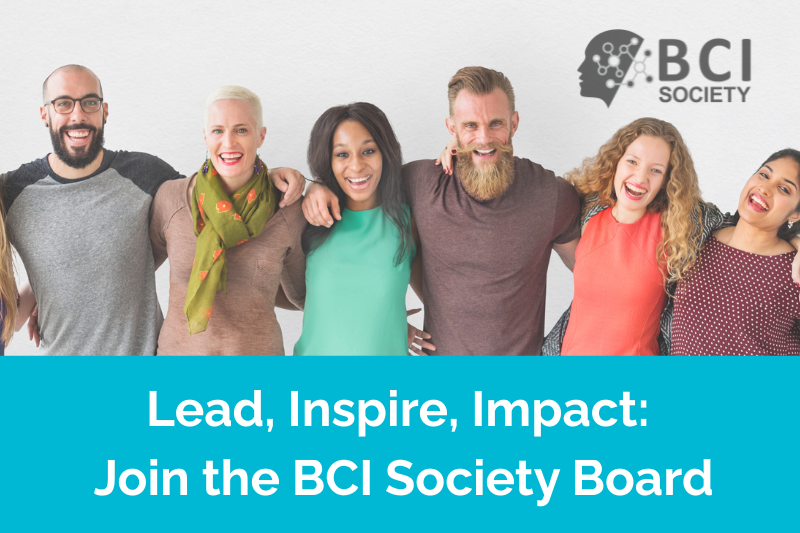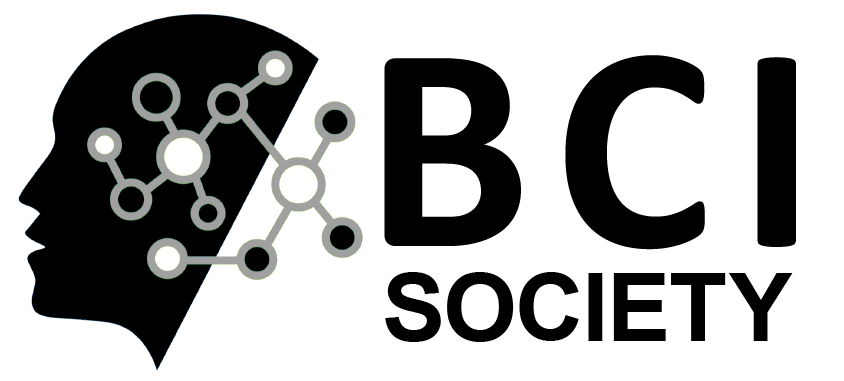Elections

Shape the Future of the BCI Society!
Members are invited to take an active role in shaping the Society’s future—either by nominating outstanding colleagues or putting yourself forward for election to the Board. Running for the Board gives you the opportunity to bring forward ideas that strengthen our community and advance our mission.
The Board of the BCI Society consists of 12 seats. As per the bylaws, 3 members are Officers:
- President
- Vice-President
- Treasurer/Secretary
Officers are elected by the Board and stay on for 2 years. Board members are elected for 3 years and a maximum of 2 terms. The Past-President acts as an ex-officio member of the Board whose term is 2 years.
Current Board
Officers
Marc Slutzky (President), (IO) officer term ends 2027
Reinhold Scherer, (Vice President) term ends in 2027
Betts Peters (Treasurer) term ends in 2027
Board Members
Abidemi Bolu Ajiboye (I) term ends in 2027
Mariana Branco (I, Control) term ends in 2028
John Downey (I, Control/I, Other) term ends in 2028
Jose Contreras-Vidal (NI, Control) term ends in 2028
Cuntai Guan (NI, Control) term ends in 2026
Robert Gaunt (I, Other) term ends in 2026
Christian Herff (IC, I Other) term ends in 2026
Eli Kinney-Lang (I, Control/I, Other) term ends in 2028
Andreea Sburlea (NI, Control) term ends in 2028
Ex-Officio
Mariska Vansteensel (Past President)
NC: Non-invasive Control (restoring or replacing movement or communication)
NO: Non-invasive Other (rehabilitation, enhancing/supplementing, stimulating)
IC: Implantable Control (restoring or replacing movement or communication)
IO: Implantable Other (rehabilitation, enhancing/supplementing, stimulating)
Three seats are open for nomination
This election period, three seats are open for election. Two seats are open for the implanted categories and 1 seat is open for the non-implanted categories.
Robert Gaunt, Cuntai Guan and Christina Herff’s terms are set to end in 2026. All are eligible for nomination for a second term.
We will seek to maintain a balance between researchers with a focus on implanted and non-invasive BCIs.
As per the society Bylaws, all nominees will be evaluated by a Nomination Committee on the following criteria:
- professional reputation (e.g., an established record of involvement in BCI research, education, and/or commercialization),
- societal outreach and activities to support the cause of the BCI field,
- service to the BCI Society (e.g. at the BCI Society meetings),
- conflicts of Interest (real or perceived that could impact the nominee’s ability to perform their duties as Board Member),
- diversity
Based on this evaluation, the Nomination Committee will propose a slate to the Board. The Board Nomination Committee consists of the President, Vice President and an independent Society member. Upon Board approval, the individuals on the slate will be announced as official candidates for the BCI Society Board election.
REQUIREMENTS FOR NOMINATION:
– Nominee is a member of the BCI Society
– All members in good standing (dues paid, no legal dispute with the Society) can nominate and vote. Nominator needs to have paid membership dues before nominating anyone.
– Nominee is in good standing. Membership dues need to be paid before being nominated.
– Nominator affirms that nominee is able and willing to accept the position and to commit significant time to it. This includes participation in in 4-6 Board meetings per year and active involvement in at least one committee.
Submitting Nominations
If you wish to submit a nomination, please download the nomination form and the COI form below and email them to cendrine@podiumconferences.com.
Election calendar
Nominations open: February 5, 2026
Nominations close: February 26, 2026
Elections open: March 16, 2026
Elections close: March 30, 2026
